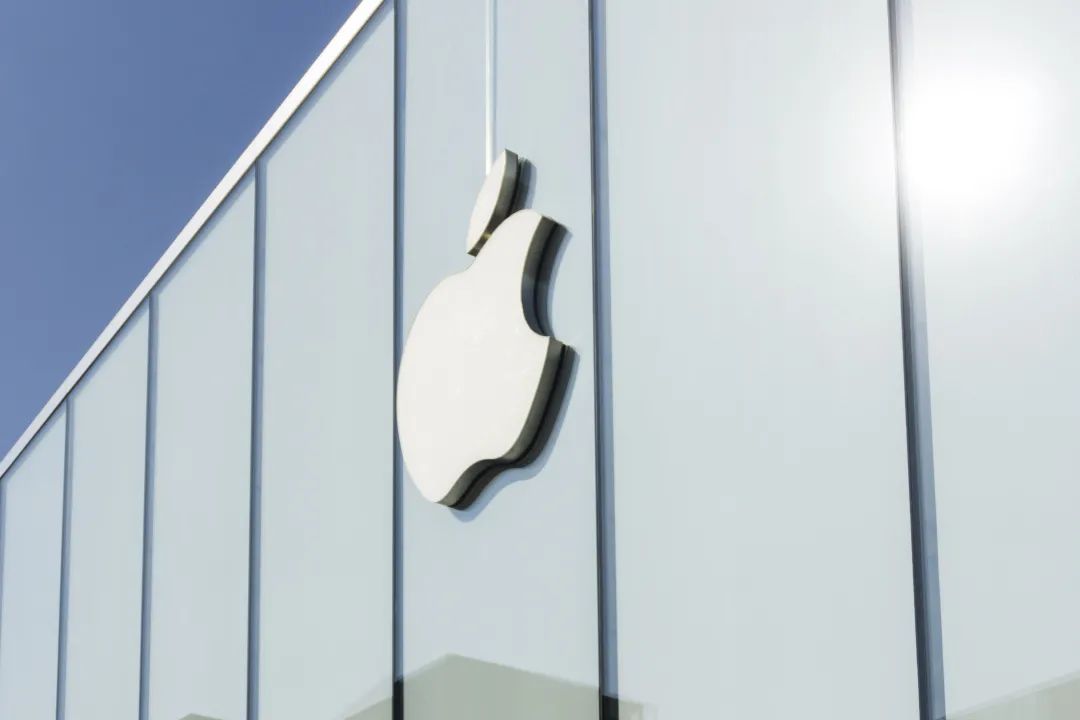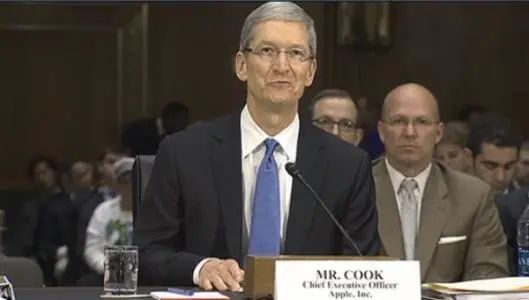A brief history of Internet anti-tax
The following articles are from the Alphabet List , author Cheng Jie
Let the future go beyond the big ones

Tax increases have become a major problem for technology companies in many countries in recent years.
In July, Indonesia announced a 10% value-added tax on Amazon, Google, Netflix and Spotify; in August three Facebook subsidiaries, TikTok Indonesia, Disney Southeast Asia and others were added to the tax list; and in September the tax list expanded further, with LinkedIn Singapore, Twitter's two businesses, Zoom, JD Indonesia and Microsoft Ireland, among others.
These technology companies must start charging advertisers and other customers 10% VAT from October 1.
Indonesia requires non-resident foreign companies selling digital products and services in the country to pay 10% VAT if their annual sales exceed 600 million rupiah ($40,000) or generate more than 12,000 user traffic per year.
In other words, Indonesia's VAT list for technology companies is likely to continue to expand.
The EU is a bigger problem than Indonesia.
In 2010, France's culture ministry issued a report that said France should impose a tax on advertising revenues on Internet companies to subsidize the country's cultural industries. The tax is known as the "Google tax."
After years of controversy, in 2018 the European Union pushed through a draft law on the Digital Single Market Copyright Directive, whose Article 11 explicitly requires websites to be charged for the reprint of original news content, known as the "link tax" or "Google tax" - a direct target for internet giants such as Google and Facebook.

Indonesia's value-added tax is an out-of-price tax, directly borne by consumers, and the "link tax" is not strictly a government tax, is to require Internet service providers to publishers, writers and other content creators to pay fees - imagine, you use Baidu to search for a Tencent press release of a short letter link, just links, Baidu also need to pay Tencent News and authors, baidu do not do this?
Search engines have mastered the most important traffic portals to the Internet (especially in the PC era), where is not Dad? Google will naturally not be willing to pay "link tax" alsoAt one point, it was "threatened" that if the EU opened a link tax, it would leave the EU market and stop offering services such as Google News to EU countries.
More generally, European countries are pushing for more direct digital tax collection, especially as their finances continue to deteriorate in the outbreak, and countries such as France and britain have announced their own digital tax plans in the face of Mr. Trump's re-election threats.
The British government has announced a 2 per cent "digital service tax" (DST) on a number of US tech giants, including Amazon, Facebook and Google, from April 1st, while France will unveil its own digital tax bill in July 2019, imposing a 3 per cent tax on the gross annual income of big tech companies (shelved because of the threat of Trump's re-tax increases).
The UK's "digital service tax" applies to companies with global sales of more than 500 million pounds ($648 million) and at least 25 million pounds ($34.2 million) from UK users;
It's obviously aimed at big tech companies, so giants like Google, Facebook and Amazon say it discriminates against big business.
It's not just digital virtual services,The EU VAT (VAT) for the e-commerce industry is also continuing:
On September 16, 2016, VAT regulations were officially introduced in the UK, which require VAT to be paid when goods are sold in the UK to UK consumers;
On November 9, 2018, Germany passed a new law regulating the VAT tax liability of e-commerce platforms and their sellers in Germany, and the e-commerce platforms are obliged to supervise and regulate the payment of sales value-added tax by sellers on their platforms and bear a shared legal liability;
Since then, France has also enacted a value-added tax bill, European countries on cross-border e-commerce VAT issues have been repeatedly mentioned, European tax compliance has prompted Amazon and other e-commerce platforms to VAT registration requirements.
Digital services, hardware products, cross-border trade, online retail... None of them were spared.
In addition to tax issues, the EU's 2018 GDPR (General Data Protection Regulations) places severe restrictions on the widespread data-based operations of technology companies.
Technology companies should all be annoying the EU.

Of course, the major technology companies have never been a "good citizen" who is comfortable with food.
The tech internet giant's "anti-tax" past is a long history of "tax avoidance", such as the well-known "tax havens", the most well-known of which is the Cayman Islands.
Apple, Microsoft, Intel, Tencent, Alibaba and others have also chosen the Cayman Islands as a place of registration to avoid taxes. To date, more than 100,000 companies have registered in the Cayman Islands, which is also home to more than 800 insurance companies, more than 700 banks and nearly 10,000 hedge funds - making it the world's fifth largest financial centre.
It's not just technology companies that are avoiding taxes in this way, but companies such as Procter and Gamble and Coca-Cola, which have grown rapidly over the past half-century, and the scale of tax avoidance through differences in tax policies between different countries and regions has grown because of the hidden nature of digital services and transactions.
At the end of August, Google said its tax authorities had launched a tax review of the company.
Thomas Tolslov, who works in the department, and two scholars at the University of California have estimated thatIn 2017, 40 per cent of the profits made by multinationals outside their home countries were transferred to tax havens, amounting to more than $200 billion equivalent to 10 per cent of global corporate tax revenues.
Fair Tax Mark, a UK tax certification body, assesses that the global "tax gap" between Facebook, Apple, Amazon, Naysai, Google and Microsoft totalled more than $100 billion over the decade from 2010 to 2019. Amazon, Facebook and Google are among the top three.
In the non-domestic business of multinational technology companies, the mismatch between revenue and tax is more obvious.
eMarketer predicts that Google and Facebook together will account for 68.5 percent of the UK digital advertising market in 2019, with Google earning $8.27 billion and Facebook $5.16 billion. In 2018, Google paid just 65.3 million pounds in taxes to the British government.
Google's revenue in Denmark in 2019 was DKK 284 million ($45.4 million), but Google's results show no provision has been made for the Danish tax review.
In recent years, the United States and European countries around the digital tax has played a lot of games, but the negotiations between the two sides have not made real progress. Currently, 10 countries, including Austria, Brazil, the Czech Republic, the European Union, India, Indonesia, Italy, Spain, Turkey and the United Kingdom, have made it clear that they are adopting or considering a digital service tax.
The Trump administration has threatened retaliatory measures against any new taxes.

In June, the U.S. pulled out of U.S.-European digital service tax negotiations. The United States has launched an investigation into whether the digital service tax plans of the countries involved constitute unfair trade practices;to determine whether the U.S. government imposes new tariffs equally.
More than 80 per cent of Google's annual tax payments go to the US government, according to Christine Sorensen, head of public policy at Google Denmark.
Still, there's a lot of debate in the U.S. about paying taxes on technology companies.On more than one occasion, Apple has been accused of avoiding tax obligations by putting its huge overseas earnings overseas.
In 2013, a 300-page report by a U.S. Senate committee referred to Apple's avoidance of at least $3.5 billion in federal corporate income taxes in 2011 and at least $9 billion in 2012 through the creation of Irish subsidiaries and a complex tax system.
Using loopholes in the U.S. tax code to avoid taxes is what the government sees as "tax evasion," which Cook believes is becauseAmerica's tax system needs to be reformed, and corporate tax rates must be lowered(The federal government imposes a 35% tax on overseas profits.)
In 2018, Mr. Trump pushed for a tax reform package that would cut the U.S. corporate tax rate to 21 percent, below the level of the vast majority of oecd members.
The U.S. tax code also requires U.S. companies to pay no tax on their overseas earnings if they are used to buy government bonds or other U.S. securitiesThe "bond haven" not only avoids taxes for multinationals, but also gives them interest income paid by the government.

As for the digital service tax, the EU's position is that "it's not just about fairness, it's about sovereignty." "
France's announcement of the digital service tax follows the US's first "301 investigation" into France.
Although France insists that the draft law imposing a digital service tax is an act of French sovereignty, it has backed down from the threat that the US, France's biggest single export market for wine and spirits, will threaten to impose tariffs of up to 100 per cent on some $2.4bn worth of French champagne, cheese and handbags in 2019.
At the 2019 G7 meeting, the US and France reached an armistice on the "digital service tax".
Schumpeter put forward the concept of "tax state" more than a hundred years ago, and the pursuit of "tax power" by modern sovereign states has reshaped the social power of the bureaucracy.
As Benjamin Franklin said, in this world, only death and taxes can't escape. "
The EU's push for a digital service tax is one of the elements of EU sovereign integration.At present, the EU has established the Council of the European Union, the European Commission, the European Parliament and other governance bodies, but the fiscal and tax institutions have not been unified.
In 2011, the EU proposed the idea of a "digital single market" and in 2015 launched the Digital Single Market Strategy, announcing that it would promote cross-border trade in the EU through a range of measures, including policy reforms, copyright law, consumer protection and cloud services.
In this context, the harmonization of digital tax policies is a very important part of this, but in the context of difficulties in coordinating national interests and legislative disputes, progress has been slow,France's digital service tax is under pressure from the United States alone.
In July 2020, the U.S. Trade Representative's office announced that the U.S. intends to increase tariffs by 25 percent on French goods worth about $1.3 billion in response to France's introduction of a digital service tax that would adversely affect U.S. technology companies. At the same time, the U.S. side also said that the tariff increase plan will be delayed until January 6, 2021 to enter into force, in order to achieve a satisfactory outcome of bilateral and multilateral negotiations to buy more time.
The erosion of the traditional tax base by multinational internet giants is an international challenge, in Cook's words,The current international tax system, built on the industrial era of the past, is highly unsuitable for a more prosperous digital economy today.
For example, the "double-decker Irish sandwich Dutch sandwich" this tax avoidance model invented by Apple itself, once for the tech giants to avoid huge domestic taxes, Ireland also benefited from this, seize the opportunity to transform development, rapid economic growth - over the past nine years Ireland's average annual GDP growth rate of 7.52 percent, even in this year's epidemic,Ireland was also the only developed country to see positive growth in the first half of the year, with GDP growth of 1.3 per cent.
In 2016, EU antitrust authorities imposed tax penalties of up to one billion euros on Apple, ordering the company to pay back a billion euros in back taxes to the Irish government. The European Commission also ruled that Ireland's tax incentives with Apple violated EU law by requiring Apple to pay Ireland 13 billion euros in back taxes and interest.
The EU took Apple and Ireland to court in 2017 after Ireland failed to meet the EU's ruling requiring Apple to pay back taxes.
Ireland and Apple won an appeal against the European Commission's 13 billion euro tax bill in July when the European Court of Justice ruled. The EU also announced it would appeal the tax case.
Although Ireland said in 2014 that it would close the "double-tiered Ireland" tax loophole, it has not increased its corporate tax rate (12.5 per cent) and the tax haven has not closed.
Apple has shifted, and after The Trump tax reform, the new tax code would tax U.S. companies' overseas profits once, with a tax rate of 15.5 percent on cash profits and an 8 percent non-cash tax rateU.S. corporate income tax on overseas profits will also be less than 21% corporate income tax, funds began to flow back to the United States.

Apple announced a new tax reform plan in 2018 that will create 20,000 new jobs and build new parks. And Apple plans to pay about $38 billion in taxes on overseas money.That means almost all of Apple's $250 billion in overseas cash is remitted back to the United States.
Google's parent company Alphabet's 2018 tax filings also show that the company will no longer use the "Irish-Dutch Sandwich Architecture" intellectual property licensing framework, which a Google spokesman said followed changes to U.S. tax laws in 2017.
International tax coordination has also continued, with endorsements by G20 leaders and commissioning international tax reform programmes promoted by the Organisation for Economic Co-operation and DevelopmentTax base erosion and profit shifting (BEPS) are important steps for countries to work together under the G20 to combat international tax evasion.
"Where to pay taxes" and "tax proportions" for multinationals are the focus of negotiations on new rules, which will continue until 2020 with a view to reaching an agreement on a tax framework by the end of 2020.
In the course of "globalization" over the past hundreds of years, modern countries have gradually established a cumbersome and complex international tax system.The system is based on thousands of bilateral agreements
But today's world is in the midst of a lack of a multilateral coordination framework, with unilateralism prevailing and Trump with only "Make America Great Again" in his mouth.
Biden, who is running against Mr. Trump for the next U.S. presidency, also proposed a "carbon regulatory fee" for goods that "fail to meet their climate and environmental obligations."
Whatever the outcome of this year's election, America's attitude is hard to change.
Not only is the US saying "no", but the EU's levy on digital services tax, which also does not give re-equal rights to other countries, but the transparency of China's tax revenues has also been called into question, and it is still trying to stay in the EU VAT area after Brexit.
The shadow of trade protection continues to grow, re-equal rights do not exist, and re-sanctions will continue to emerge.

Network data has become a new type of production material, with everyone in solidarity, and can not be stripped.
Schumpeter believes that the emergence of a "tax state" is conducive to the development of congress democracy (e.g. "taxpayer" consciousness), and taxation is also one of the most important components of the social distribution system.
The question of taxation is always linked to social equity, and can individuals benefit from the digital economy?
But in the world of the Internet, tech giants have a stronger bottom.
After the UK government announced a new "digital service tax",Apple, Google and Amazon have announced that they will raise the price of services for UK corporate customers:
Apple said the cost of app Store UK developers would rise by 2 per cent, while Amazon said it would increase "transfer fees, Amazon's FBA fees, monthly FBA storage fees and multi-channel track fees by 2 per cent in the UK, and Google will increase the cost of buying ads on Google Ads and YouTube by 2 per cent."
The tech giant disguised the sales tax (out-of-price tax) as a "value-added tax" (in-price tax) as an in-price tax that will always be paid by the final consumer.
In addition,Technology giants are also implementing the "tax right" in the information world after deviate from the "open and free" spirit of the Internet.
In August, Epic Games sold its fortress night directly to users, publicly violating the App Store's pay rules, and Apple shut down Epic Games' developer account.
The 30% share of app sales and payments is a much-maligned issue in Apple's ecology, and Apple has always been tough, even in "antitrust investigations."
Facebook said on September 25th that Apple had agreed to allow small businesses forced to pay online through the Facebook app because of the outbreak, without having to pay 30 per cent of apple App Store trading revenue. The exemption period is three months, which ends on 31 December this year.
Apple appears to have given in, but an Apple spokesman said it was to give them more time to adjust their digital business models.
Other wordsThe exemption could be just one extra "kick" to lur online services to Apple Pay.
Google, meanwhile, is looking to Apple, which said on September 28th that from next year all developers in the Google Play app store would have to use Google's payment system and no longer use a separate payment system, and that it would take a 30 per cent share of each transaction.
Domestic Internet companies are no less, domestic Android manufacturers rival travel manufacturers' channels even more than Apple, Google 30% of the draw, up to 50%, in addition to about 5% of the payment channel fees.
On September 23rd, another game maker opened fire on the domestic Android App Store:
Miha Tour "Original God" announcement is not on the shelves of Huawei, Xiaomi App Store;
Lilith in addition to the release of the huawei game center announcement, but also in the official website posted that "Awakening of All Nations" online platform temporarily for the App Store, official website, TapTap, nine tours.
The U.S. House Judiciary Committee's antitrust subcommittee is expected to release its report on antitrust charges against amazon, Facebook, Apple and Google as early as Next Monday (October 5).

At his last hearing, Mr Cook said: "In the more than a decade since the App Store debuted, we have never raised commissions or increased any fees. In fact, we've reduced the cost of our subscriptions and exempted us from additional categories of apps. "
Cook has always been good at pushing Apple's interests to the level of better user experience and customer service, and Apple has always been an arrogant person who "anti-tax" the government and "tax" its customers.
In this war of Internet "anti-tax", which is destined to last a long time, there are many different roles of citizens, enterprises, governments, international organizations, and so on, everyone has their own interests to defend.
The illusion of a free market fades and high walls fall everywhere.


Go to "Discovery" - "Take a look" browse "Friends are watching"